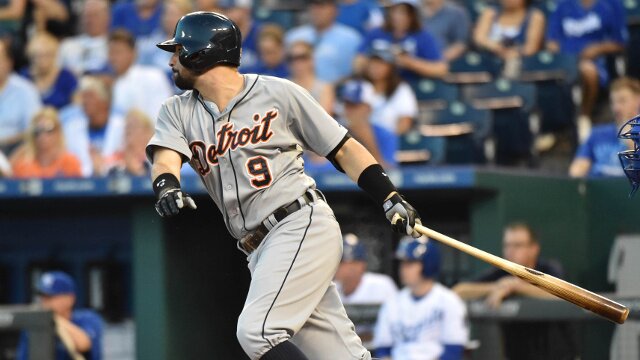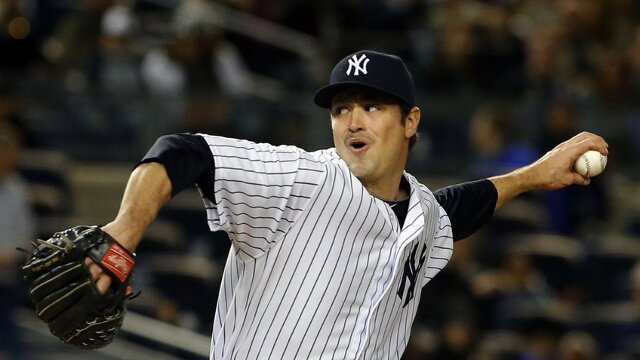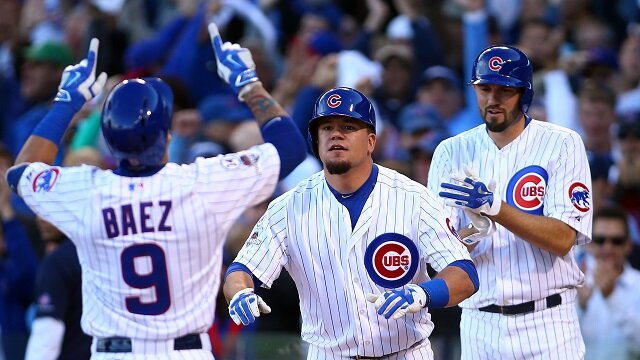
The strike-shortened season of 1994 could have been the beginning of the end for Major League Baseball. Fans were angry and fed up that MLB and the MLBPA couldn’t get a deal worked out to save the season. It was a season in which the Montreal Expos, a team that had only one playoff appearance under its belt, had the best record in baseball, and Tony Gwynn had a shot at becoming the first hitter since Ted Williams to hit .400 in a season. But it was all for naught, as both as the players went on strike and wiped out the entire 1994 season.
When the two sides finally worked out an agreement in 1995, it was too late to play an entire season, so they played yet another shortened season. Fans were still angry, and it showed in attendance numbers and revenue. Attendance was down 20 percent in 1995 when compared to the last full season played in 1993. Revenue fell from $1.87 billion in 1993 to $1.4 billion in 1995.
In 1996, attendance was still down 10 percent compared to 1993 and revenue still hadn’t quite reached the levels of the 1993 season. Things were looking bleak for MLB and there wasn’t a whole lot they could do. There was one trend in 1996 that seemingly came out of nowhere and would eventually end up saving the entire league. By the end of the season, there were 17 hitters who had produced 40 or more home runs. In 1993, the season prior to the strike, there were only five batters to hit 40 or more home runs. This would catch the interest of fans and would provide light at the end of the tunnel for MLB.
The 1998 season was the greatest in the history of America’s pastime. Mark McGwire and Sammy Sosa would enter into the greatest home run race of our generation. It was a display unlike any other, and, whether you are opposed to steroids or not, it was the most memorable summer in baseball. Both guys would go on to break Roger Maris‘ 37-year-old record of 61 home runs in a season. McGwire would finish with 70 and Sosa with 66. The race captivated, not only the entire baseball community, but the entire country. MLB couldn’t have asked for better timing, and they were soaking it up as revenue jumped all the way up to $2.5 billion.
McGwire’s 70 home runs seemed like a record that would last forever, but then came the 2001 season and a guy by the name of Barry Bonds. Bonds would put together what was widely considered the greatest season of any hitter in history, as he finished the season with a major-league record 177 walks. He also had a .515 on-base percentage and another major-league record .863 slugging percentage. Bonds also hit .328 and had 137 RBIs. It was a brilliant season and one that will never be duplicated. Oh yeah, he also broke McGwire’s all-time single season home run record after smashing 73 homers and etched his name in the record books. Bonds would go on to later break Hank Aaron’s career home run record of 755 on Aug. 7, 2007, a night I will never forget, and finish his career with 762 bombs.
From 1995 to 2001, attendance rose 44 percent at MLB games and revenue rose from $1.4 billion to $3.7 billion. Those numbers prove that steroids saved baseball from disappearing from the national pro sports landscape. Everyone wants to punish the players who took steroids when what they accomplished could be considered the most important era of all time.
MLB was the one that didn’t put any steroid testing in place until 2003. MLB was ecstatic raking in the dough while these home runs were being hit. No one ever even stopped to think, wow, I wonder why there’s such an astronomical spike in home runs? Everyone enjoyed the ride and lost themselves in the pure excitement of the era. For MLB to then come back and punish these guys and try to expunge all their records is hypocritical. If the steroid era guys can’t go into the record books for what they achieved, then MLB should have to forfeit the revenue they made off the players due to steroids.
 Share
Share 










